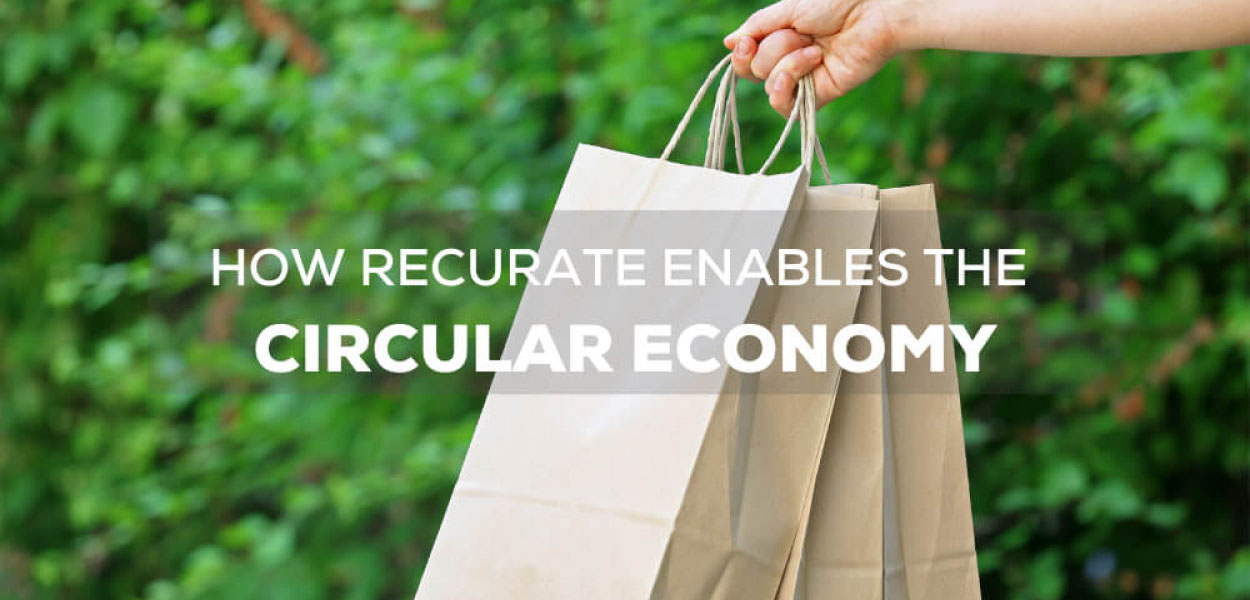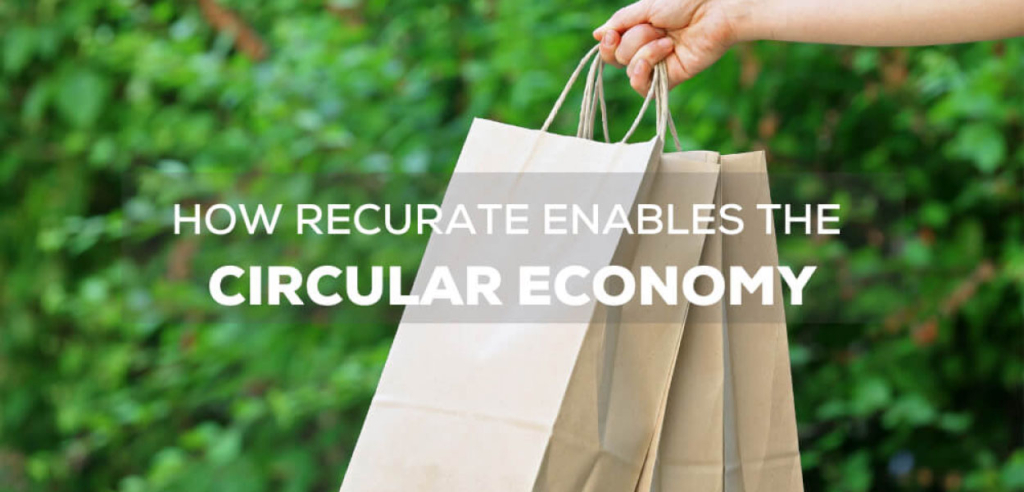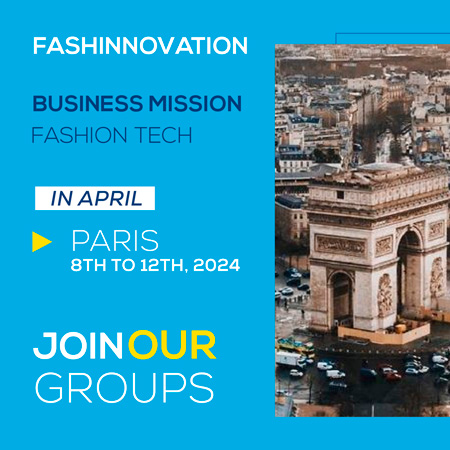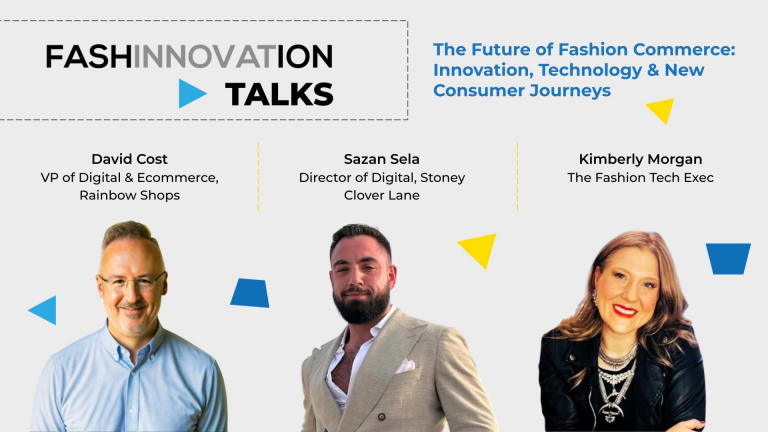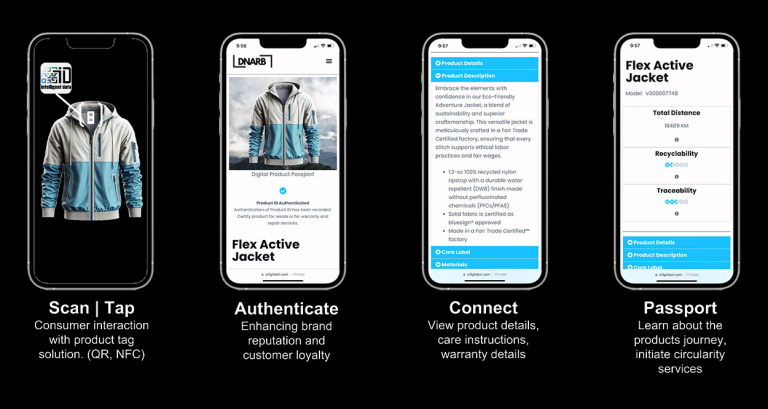When picturing a sustainable world, a circular economy is an integral part of it. Instead of shopping only for new products, consumers are given the chance to buy second-hand items, including directly from brands.
As Fashion Revolution claims, the number of garments produced annually has doubled since 2000. It has exceeded 100 billion for the first time in 2014. It is estimated that 92 million tons of textile waste are created annually from the fashion industry.
The production impact of apparel is huge and, consequently, so is the waste. Every second, the equivalent of one garbage truck of textiles is landfilled or burned globally. So why not resell the clothing that’s already out there, instead of putting new ones on the journey? Innovative companies like Recurate are showing brands that circulating pre-loved products can only be positive. It not only helps the environment, but also offers a new avenue for sales and community growth.
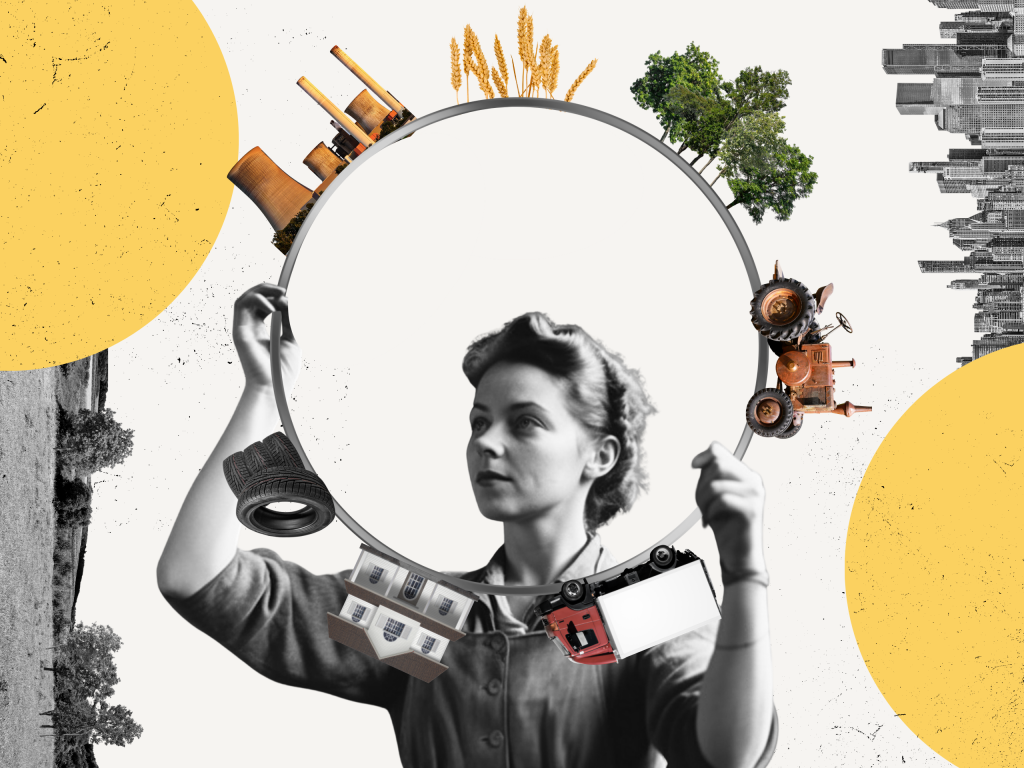
What is the Circular Economy
The circular economy aims to keep products and product materials in use for as long as possible to eliminate waste and the continual use of natural resources. One way for fashion brands to engage in the circular economy is to address waste by creating an avenue for product takeback and resale. For customers, that means an opportunity to confidently buy and sell second-hand directly with brands.
Meet Recurate
Recurate is an e-commerce integration that enables a brand’s customers to resell their used products directly on their website, creating a brand-curated resale marketplace that raises traffic, sales, and sustainability. Their technology allows sellers to quickly list an item directly from their purchase history, making it easier than ever to buy and sell used products.
In addition, Recurate accesses original brand information, images, and product descriptions for resale items, creating a premium, on-brand browsing experience.
The seamless experience further expands to logistics post-purchase. Once a buyer purchases an item, Recurate automatically generates a shipping label. Then, the seller receives it already populated with the buyer’s address, in their email. Currently, Recurate works with over 25 brands including Mara Hoffman, La Ligne, and Peak Design. Recurate’s partners see resale as a way to grow revenue without selling additional new products, while offering their customers a more sustainable way to shop.
The Circular Economy: Capturing Millennial and Gen-Z Attention
Secondhand shopping is receiving more attention from Millennials and Gen-Z than from any other generation. As an in-trend, less expensive, and sustainable alternative, secondhand fashion grew exceptionally quickly in 2020.
“A lot of us see the way we spend our time and money as an investment, and we want to be investing in things that are positive in the world,” said Deanna Pratt, a self-described “Zillenial” who leads marketing for Recurate.
While platforms such as Depop, Poshmark, and The RealReal are popular for online secondhand shopping (especially among the Millenial/Gen-Z age group), Recurare sets itself apart from these platforms by enabling brands to host a branded resale marketplace right on their main website. By adding secondhand options to their e-commerce stores, brands attract shoppers who wouldn’t otherwise be purchasing products on their websites. For brands, this creates new sales and marketing channels. And buyers benefit from an integrated way to buy used products from their favorite brands, and the confidence of knowing they can easily resell their product when they’re done with them.
The Power of Pre-Loved
As the resale space continues to grow, so does the demand for sustainable business practices. It’s important to consider that used products are the most sustainable products on the market. Therefore, including resale in your sustainability strategy is an easy way to make a massive impact.
“Pre-loved items are the most sustainable items that someone can buy. That’s because there is zero manufacturing impact after the initial production,” elaborates Wilson Griffin, co-founder and COO of Recurate.
Environmental Sustainability
Consumers are demanding transparency and responsibility. For this reason, operating sustainably has become crucial for brands and retailers to stay relevant into the future. Recurate acknowledges that profitability and operating sustainably are concerns that have to be addressed mutually.
With its focus on pre-loved items and innovative re-commerce processes, Recurate presents its partners with a solution. Brands can offer their customers a more sustainable shopping experience while simultaneously growing their revenue streams.
Griffin affirmed that “eventually, we want brands to be making product design decisions, material selections, and inventory planning with the expectation that they will sell an item multiple times”. He also compliments that these practices “can have an incredibly positive impact on our waste crisis and how both brands and customers think about making and buying products.”
Check out our article about about “Sustainable Projects Within the Fashion Industry”.
